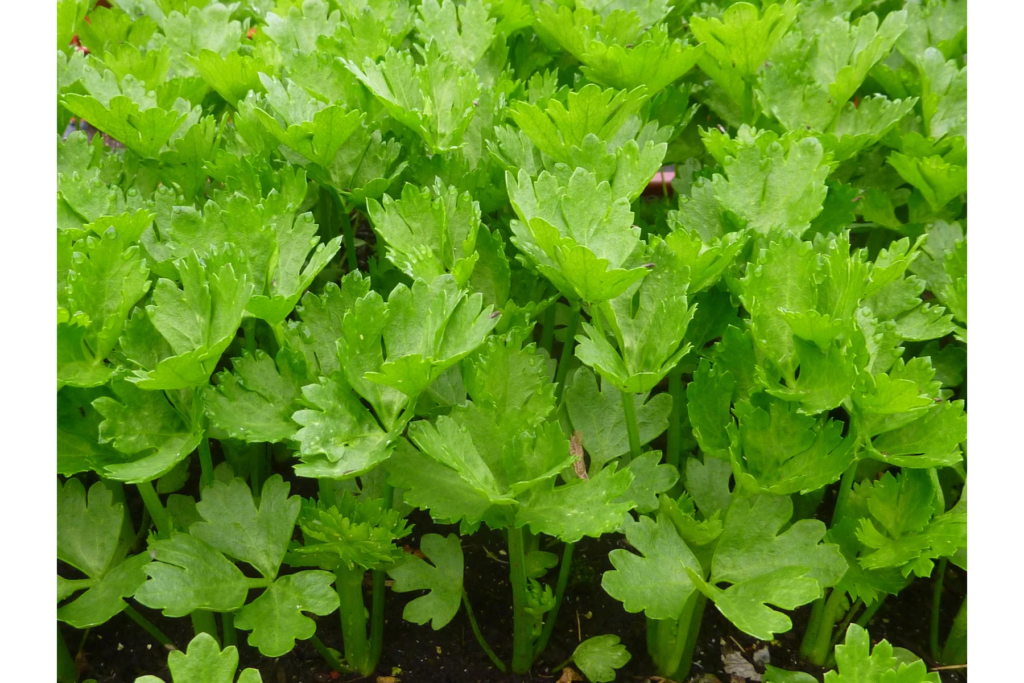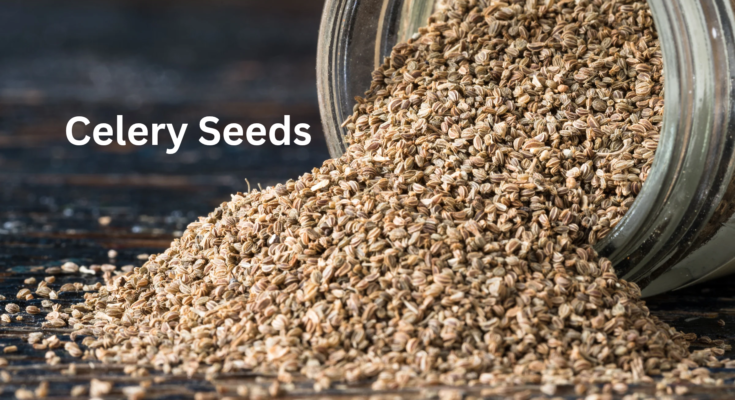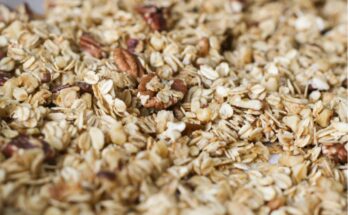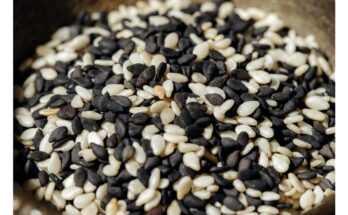Celery (Apium graveolens) is a highly valued salad crop and medicinal plant that grows between 70 and 170 cm tall. It features fleshy, bulbous roots, jointed stems, and vibrant green leaves that emerge directly from the roots. The compound leaves are large, succulent, and supported by long stalks. Its small, dark brown fruits emit a distinctive aroma when cut open, and its seeds are similarly brown in color.
In India, celery is widely grown in home gardens for culinary and medicinal uses. The leaves are often used as vegetables, while the roots and seeds are integral to Unani and Ayurvedic medicine.
Nutritional Composition of Celery Seeds
Celery seeds are a powerhouse of nutrients. Per 100 grams, they contain:
- Moisture: 5.1%
- Protein: 18.1%
- Fat: 22.8%
- Carbohydrates: 40.9%
- Crude Fiber: 2.9%
- Ash: 10.2%
Mineral and vitamin content includes:
- Calcium: 1.8%
- Phosphorus: 0.55%
- Iron: 0.45%
- Sodium: 0.17%
- Potassium: 1.4%
- Thiamine: 0.41 mg
- Riboflavin: 0.49 mg
- Niacin: 4.4 mg
- Vitamin C: 17.2 mg
- Vitamin A: 650 IU
Calorific value: 450 kcal.
Nutritional Composition of Celery Leaves
Celery leaves are particularly rich in minerals and vitamins. Per 100 grams, they consist of:
- Moisture: 88.0%
- Protein: 6.3%
- Fat: 0.6%
- Carbohydrates: 1.6%
Mineral and vitamin content includes:
- Calcium: 230 mg
- Phosphorus: 140 mg
- Iron: 6.3 mg
- Carotene: 3990 mg
- Riboflavin: 0.11 mg
- Niacin: 1.2 mg
- Vitamin C: 62 mg
Calorific value: 37 kcal.

Celery Seed Oil
The fruits of celery yield up to 3% of a pale yellow volatile oil with a strong, persistent aroma characteristic of the plant. Known as celery seed oil in the market, it is valued in the perfume industry as a fixative and fragrance ingredient. The oil’s primary components include:
- d-Limonene: 60%
- d-Selinene: 10%
These compounds contribute to the oil’s distinct aroma.
Medicinal Benefits of Celery
The name “celery” originates from the Latin word celeri, meaning “quick-acting,” alluding to its therapeutic properties. Rich in essential oils, plant hormones, minerals, and vitamins, celery benefits both physical and mental health. It has a soothing effect on the nervous system and is known for its carminative, diuretic, and aphrodisiac properties.
Uses of Celery Seeds
- Indigestion: A teaspoon of celery seeds soaked in buttermilk for 5-6 hours can be ground into a mixture and consumed for relief.
- General Weakness and Malnutrition: A teaspoon of dried celery root powder mixed with honey, taken twice daily, acts as a restorative tonic.
- Tonic and Stimulant: Soaking a teaspoon of seeds in fenugreek decoction and consuming it with honey at night offers additional health benefits.
Culinary Uses
Celery seeds are widely used as spices, enhancing the flavor of soups, stews, and salad dressings. The seed oil is a prized ingredient in canned soups, sausages, and sauces. Celery leaves are versatile, consumed raw in salads, cooked in dishes, or blended into soups and juices.
Celery’s rich nutritional profile and diverse applications make it a valuable addition to diets and an essential plant in traditional medicine.





I have read some excellent stuff here Definitely value bookmarking for revisiting I wonder how much effort you put to make the sort of excellent informative website HABANERO88
Your passion for your subject matter shines through in every post. It’s clear that you genuinely care about sharing knowledge and making a positive impact on your readers. Kudos to you!.
Rattling good info can be found on web site. “The greatest mistake is trying to be more agreeable than you can be.” by Walter Bagehot.